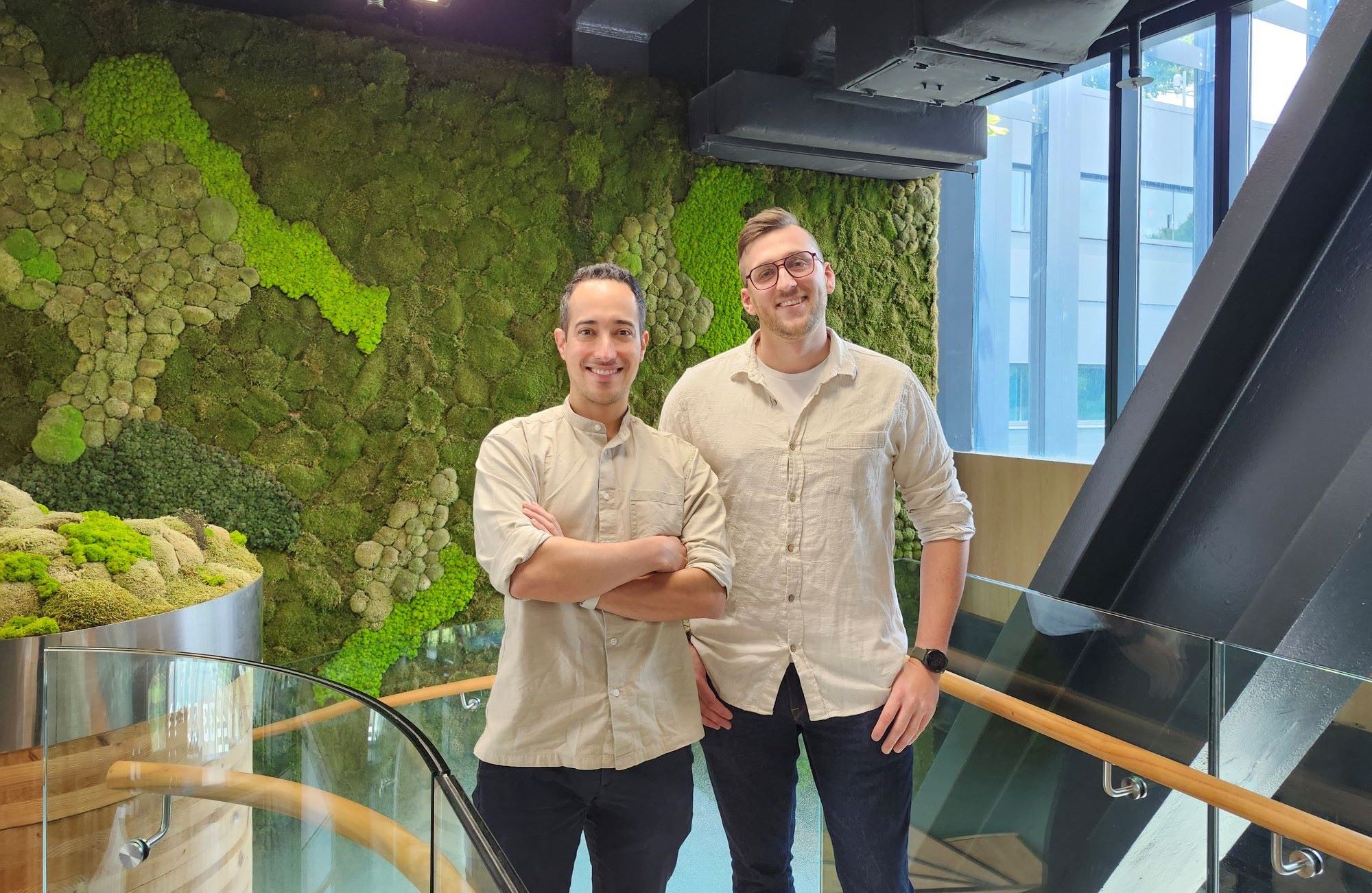How the Lee Kuan Yew Global Business Plan competition enriched the life of Australian Ricardo Garcia-Rosas and his startup Virtetic.
Coming over to Singapore on the Jetstar flight on 8 September 2023 to take part in the Lee Kuan Yew Global Business Competition was the first time Ricardo Garcia-Rosas - who lives in Melbourne, Australia - had stepped into any part of Southeast Asia.
But since his trip to pitch his startup Virtetic – a game-based virtual reality therapeutic solution for people living with limb loss – the company co-founder and CEO has visited Singapore three more times to work on placing his product in hospitals here.
His most recent trip to Singapore in September 2024 was to join the latest cohort of the Business Innovations Generator (BIG) – through which he hopes to get a hand up to start a Singapore office.
BIG is the incubation arm of the Singapore Management University’s Institute of Innovation and Entrepreneurship, for selected startups. The institute also runs the competition.
Once open, Virtetic’s Singapore office will support their work in getting regulatory approvals and working with Singapore’s Tan Tock Seng Hospital, one of Singapore’s most established and largest hospitals and with whom they have been in conversation for a year. They are on track to ink a deal soon.
Ricardo also has firm plans to expand the business to Thailand and Malaysia and has touched base with healthcare providers there.
“We see Singapore as our hub to expand into Asia. Beyond that, in the longer term, it is also easier to reach out to the US and Europe from Singapore, than it is from Australia. The competition was our window to expanding outside of Australia”, said Ricardo.
Asia: Gap for Prosthetic Therapy Innovations
He sees that there is a gap for prosthetic therapy innovations in Asia.
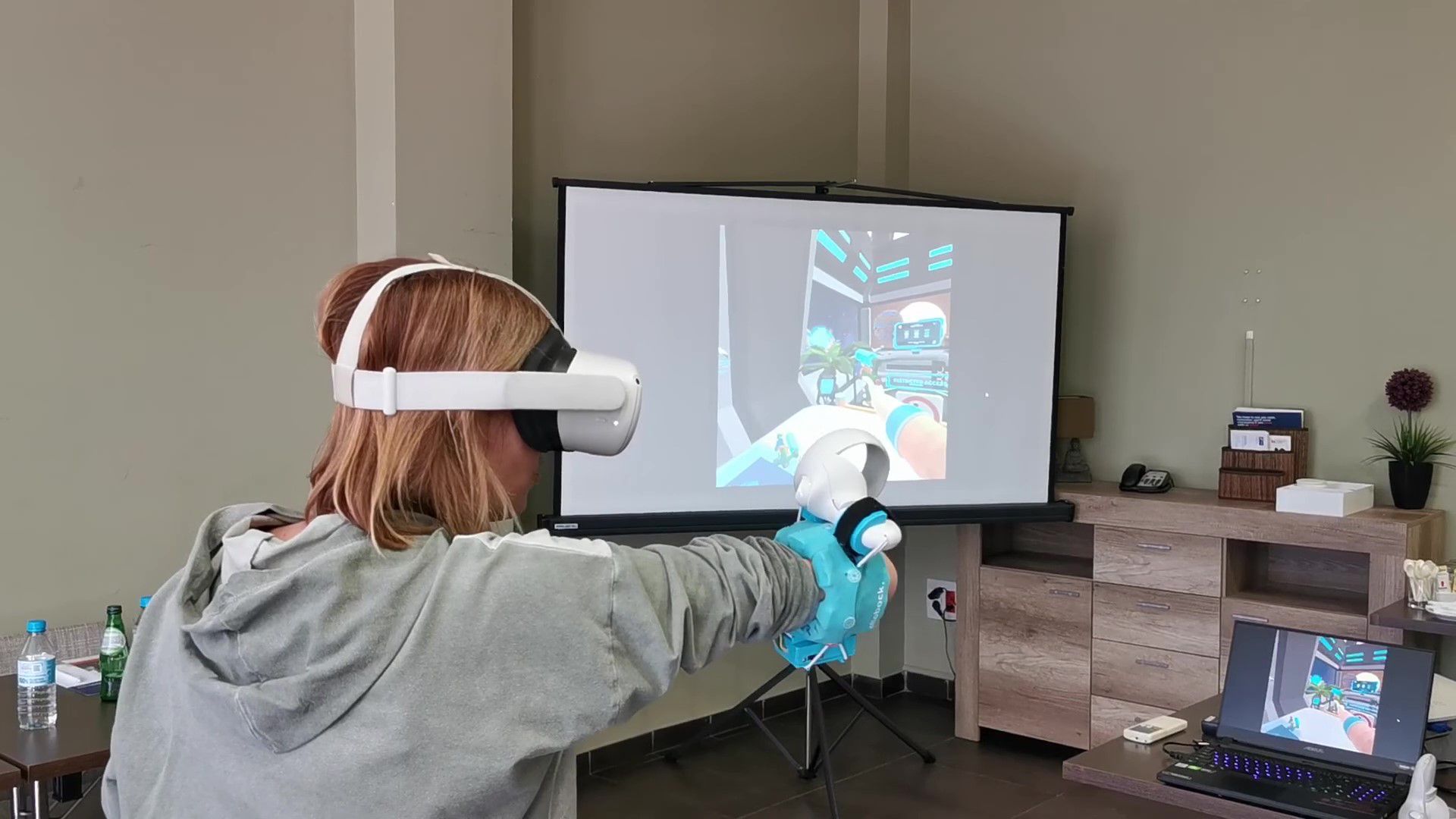
Virtetic’s VR solution aims to transform the recovery experience with a supportive virtual environment.
A lot of these are offered in places like the US, Europe, Australia and UK. But we feel that VR therapy or intervention should benefit and be accessible to people in Asia. We see an opportunity to use technology to bring about more health equity.
He has returned to Singapore so often, and has become so fond of Singapore, he keeps a photo of his favourite kaya toast in his phone gallery – from Choon Seng coffee at the Amoy Street Food Centre – because he enjoys their thick slabs of butter.
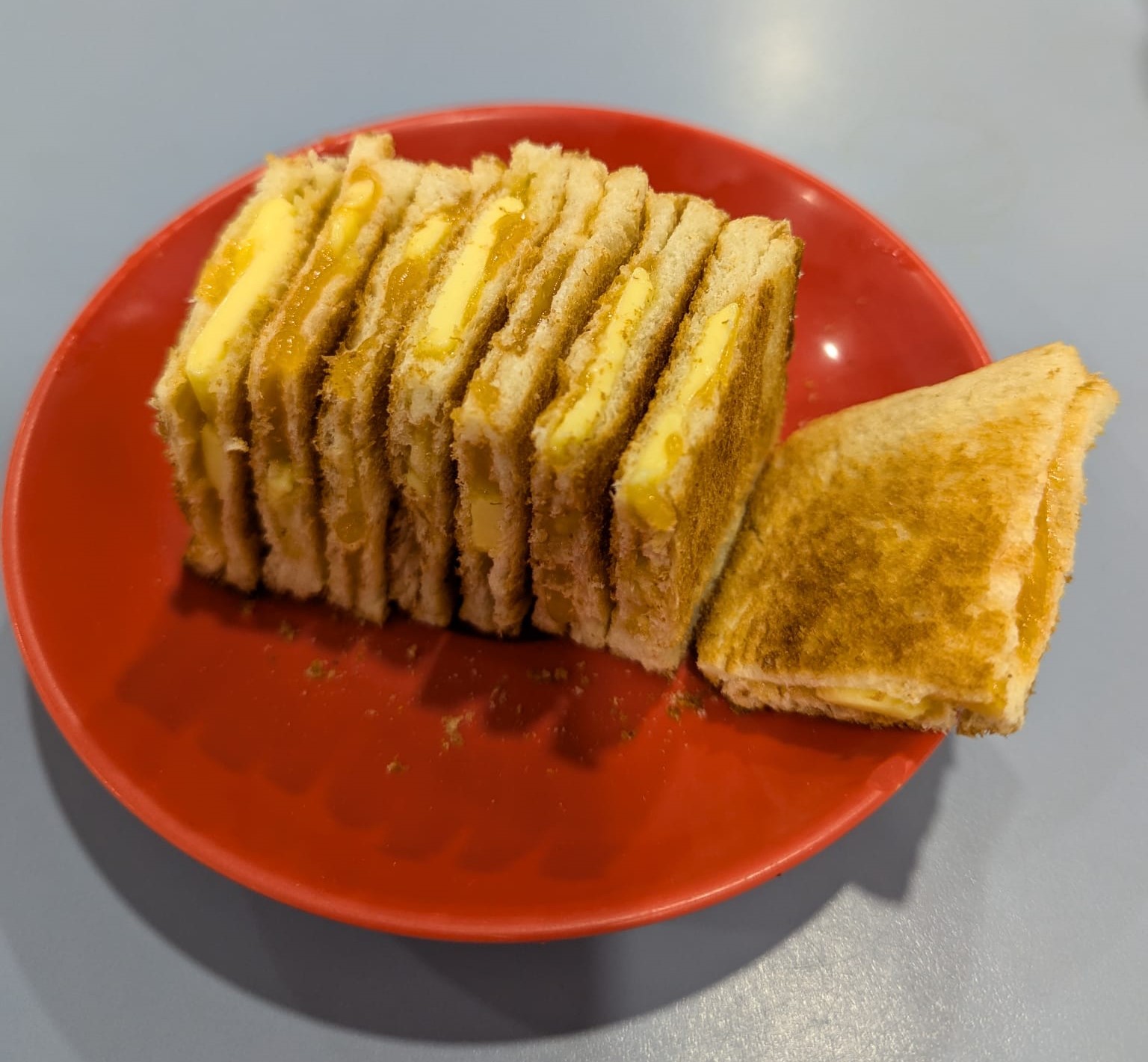
Photo from Ricardo’s phone gallery of the kaya toast from Choon Seng coffee
“We are continuing to work with SMU, via BIG, because it’s important to have a physical presence here and to properly support our customers,” said Ricardo, while sipping on teh c kosong peng (iced tea with evaporated milk without sugar) for this interview.
He added that the nature of their product also demands face-to-face demonstration. “We are getting all the support and expertise we need from BIG, through an extended network of mentors and other founders.”
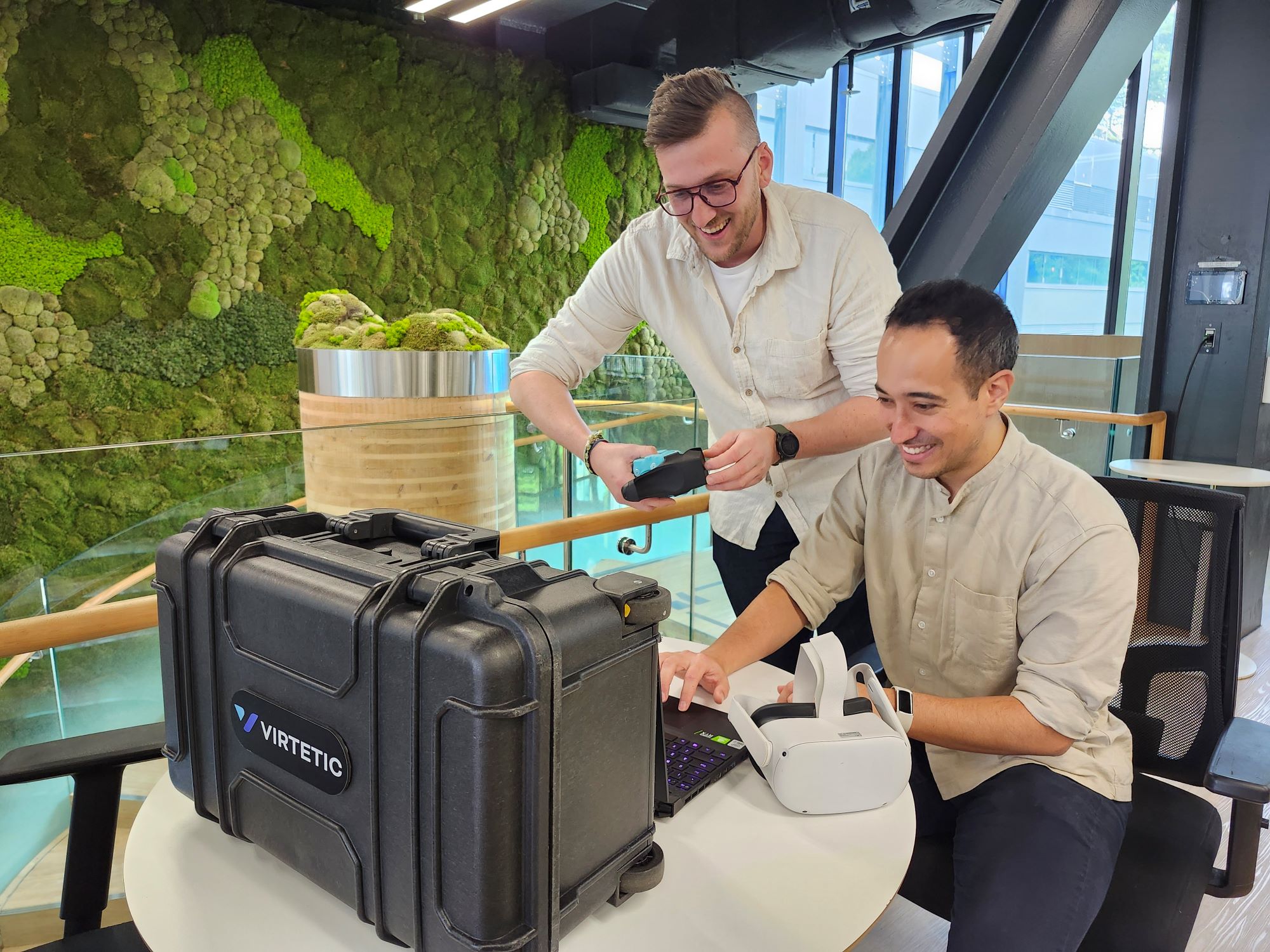
Ricardo (right) and Raphael were in Singapore in September 2024 for the Business Innovations Generator programme, at The Greenhouse of the Singapore Management University.
Up until the competition, Virtetic had been developing the business solely in Australia.
In September 2023, they had just scored a milestone when the Australian government granted the company the regulatory permits to sell their VR therapy solutions in Australia, and some clinics are now using Virtetic’s solutions.
Having heard about the Lee Kuan Yew Global Business Plan Competition via the University of Melbourne, Richardo, who had up until then only participated in pitch competitions within Australia, decided to share his business idea on a global platform.
Connections and Impact
For Virtetic, the magic moment of the competition was when one of the judges introduced the team to the head of the rehabilitation department at the Tan Tock Seng Hospital.
“That connection really helped us to open doors to the hospital. Since then, our trips here has been to get feedback from doctors, researchers and therapists to refine our product,” he said.
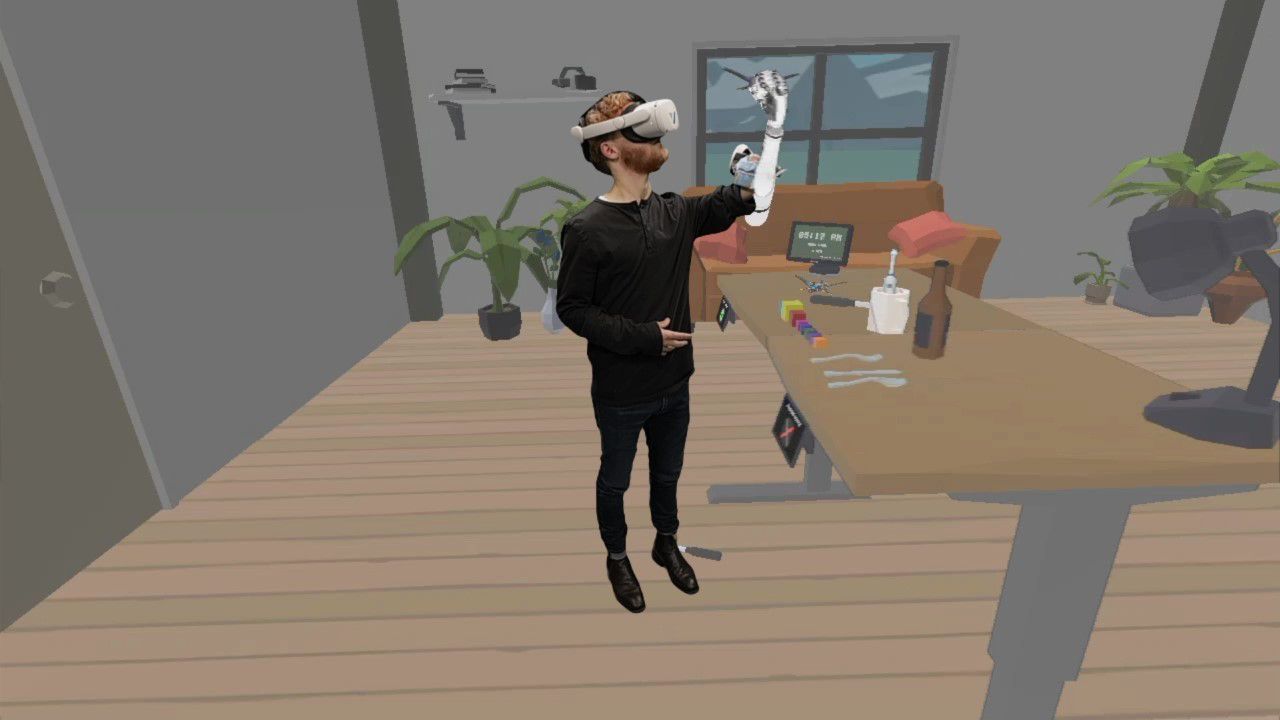
Beyond the competition, it is the memories of fun he had with dynamic startup founders from around the world and organisers which continue to echo long after the event.
“We met some really good startup founders doing really cool things. And I remember bonding through our love for food. After an event once I started chanting ‘chicken rice, chicken rice’,” recalled Ricardo, on the dish which Singapore is renowned for and which he now loves. “People burst out laughing and someone actually brought us to her favourite chicken rice place! It was a just a super fun experience.”
He is passionate about growing the business because he has seen how the VR therapy really helps amputees to adapt to their new prosthetics.
“In Australia, I saw an amputee at a clinic try the system for the first time and she was almost in tears because finally, she felt motivated and hopeful.
After an amputation, the amount of emotion that people have when they are able to virtually move their ‘hand’ is very impactful,” he said. “What we are doing is really meaningful and we will make it work.
In fact, we are looking at ultimately using our product beyond prosthetics to address spinal cord injuries and stroke. Patients who have some weakness in their limbs can also use our VR therapy to help build back their strength.
About Virtetic
When someone loses a limb, the journey to recovery is long and uncertain, causing up to 40 percent in prosthesis abandonment rates and 60 percent in phantom limb pain rates.
What Virtetic offers is a virtual reality (VR) game-based training solution to transform the recovery experience, offering immediate access to physical and mental training to foster confidence. Patients will practise and learn skills in the virtual environment via real-life scenarios, to build muscle memory and confidence, before translating these to the use of their real-life prosthesis.
